30, May 2018
‘This is a genocide’: villages burn as war rages in blood-soaked Cameroon 0
As rebel groups combat the clampdown on anglophone activists, civilians are being caught in the crossfire, with reports of many killed and tens of thousands forced from their homes
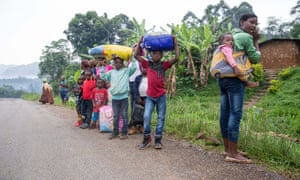
An hour and a half’s drive from Bamenda, in Cameroon’s north-west, is Belo, a village largely abandoned except for a military checkpoint manned by drunken soldiers.
In the middle of the road is a burnt motorcycle. A little further on, a corpse is sprawled – someone has tried to cover it with a few handfuls of grass.
Two girls pass by with bags on their heads filled with dried fish. “We barely have any food. That’s why we came back to collect the fish,” they say.
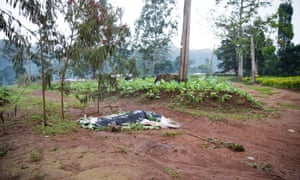
They explain that the corpse belongs to a villager. “There are many more bodies,” they add. “The soldiers burned part of the village.”
Belo is on the frontline of Cameroon’s simmering conflict between anglophone and francophone, an increasingly secessionist struggle that has pitted the French-speaking government in Yaoundé against the recently emerged Anglophone Ambazonia Defence Forces (ADF) and other rebel groups. According to the UN, the fighting has forced an estimated 20,000 Cameroonians to flee to Nigeria.
Many more people forced from their homes remain in the country. On the main road outside Belo, groups of people are moving, laden with possessions, whole families leaving with everything they can carry.
“We are on our way to Bamenda,” a woman says. Like all the others, she asks not to be named for fear of reprisal.
“There was a fight between the ADF and the army. Beginning in the early morning, I heard heavy gunfire. The army attacked the rebels in the village. The rebels blew up a bridge. So the army got stuck, and the rebels succeeded in killing the soldiers.
“The army sent reinforcements later in the day, and then they started taking their revenge on the villagers. They burned the houses, raped women and executed people at random. Those who had the chance to flee are hiding in the jungle,” she says. She could not tell how many were killed. “Many. This is a genocide.”
The matron at the nearby Mbingo Baptist hospital confirms that on the evening of 5 April “many soldiers” were brought in. About civilian casualties, however, she says she is unaware.
Although French and English are both official languages in the central African country, English speakers complain of policies they say discriminate against them, particularly in the education and judicial systems.
Beginning as an anglophone demand for more say in the government of President Paul Biya, that movement evolved at the end of 2016 into strikes, demonstrations and an uprising.
Then in 2017 the Cameroon Anglophone Civil Society Consortium began Operation Ghost Town, a call for the shutdown of schools in the English-speaking south-west and north-west provinces.
In response, the government arrested anglophone leaders, blocked the internet for three months and installed a curfew in a series of repressive measures that became deadly when, in September of last year, at least 40 were reportedly killed during massive demonstrations.
That in turn provoked rebellion when in December separatists of the Ambazonian Defence Forces began attacks on state targets, with Biya declaring war on the separatists in places like Belo in retaliation.
In the village of Ambo the scene is similar to Belo. Small groups of soldiers occupy the village centre. The walls of several houses are marked by bullet holes and arson attacks.
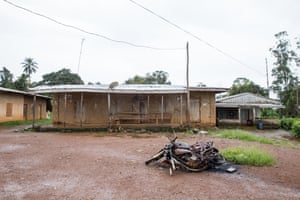
An old man is standing in his door. “I could not flee, because my leg is crippled. My grandchild had to stay with me – both her parents are dead. For weeks now, we have survived on bananas.”
He points to a nearby house. “An old woman was shot there. The soldiers killed her in her own house. I also saw two girls hit by bullets in their shoulder.”
And while the fighting in Belo occurred last month, the violence is continuing.
Near the village of Widikum, machine guns rattle. A roadblock – one of the many that are situated every 10km or so – has been attacked by rebels. When travellers are finally permitted to pass, a house is burning further down the road.
Lucas Cho Ayaba is commander in exile of the Ambazonia Governing Council, of which the Ambazonia Defence Forces are the military arm. He sees the government in Yaoundé as an occupying force.
“60% of the GDP of Cameroon is earned in Ambazonia. Oil and wood are exploited by foreign companies, but the profits go to Yaoundé. On the other hand there is allegedly no money to provide for English-speaking teachers,” Ayaba says in an interview by phone.
“Our first aim is to make Ambazonia ungovernable. We must try to raise the cost of the occupation to higher than the profits they get here.”
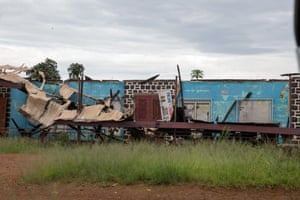
“We cannot stand idly by,” Ayaba adds. “Peaceful protests and civil disobedience in the ghost towns simply do not have any effect against the repression of Yaoundé.”
Despite this, say locals in Bamenda, support for the Amba-boys, as the ADF are locally known, is not always voluntary.
“Those who don’t support the guerrillas with food, petrol or weapons is put away as a traitor,” says the man attacked by the machete.
Culled from The Guardian
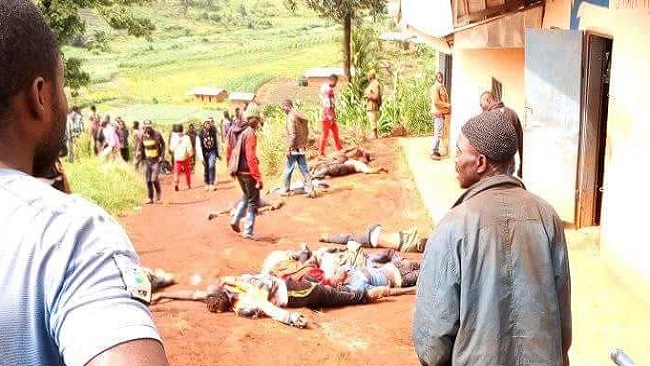
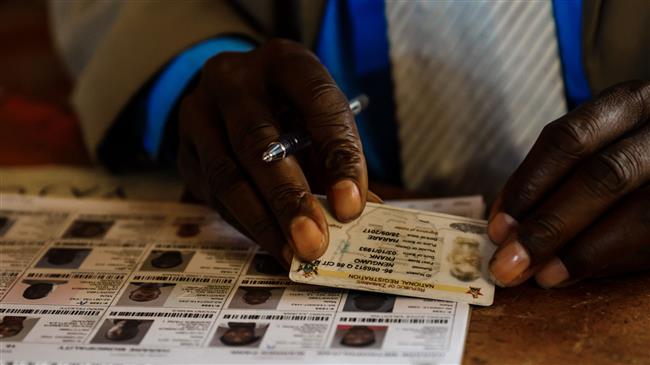

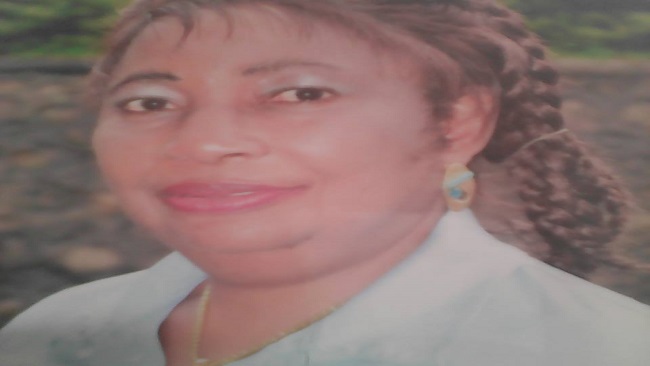


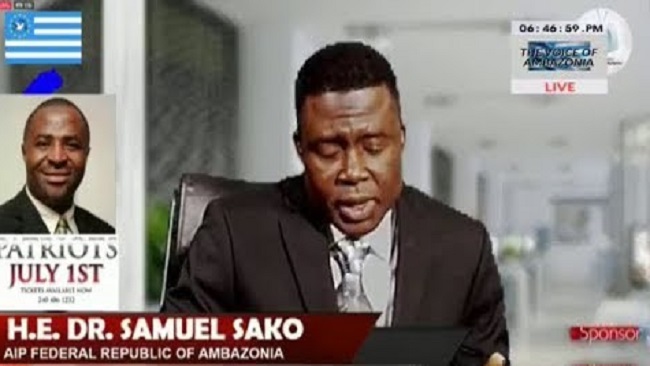
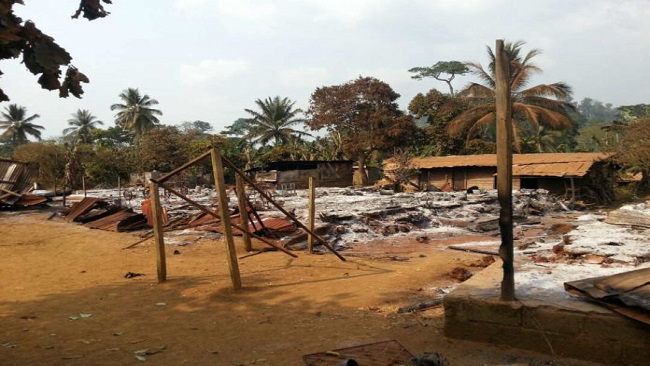

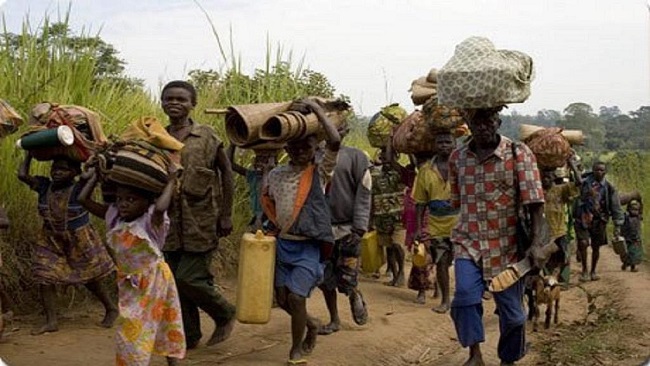












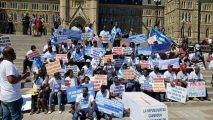
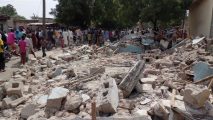



30, May 2018
FIFPro Africa Division: Geremi Njitap en route to Zimbabwe 0
CAMEROON legend Geremi Njitap and CAF deputy secretary-general Anthony Baffoe will headline a host of the game’s former stars who will converge in Victoria Falls for the annual FIFPro Africa Division Congress that bursts into life tomorrow.
In a first for the country, the Footballers Union of Zimbabwe, are hosting this year’s congress of the African Division of the World Footballers Association, which will run from tomorrow to Saturday.
FUZ president Desmond Maringwa revealed yesterday that Njitap and Baffoe will be among the 40 delegates expected to start trooping into the country today for the indaba that is key to the welfare of professional footballers across the continent.
The maiden congress to be staged by FUZ comes following a successful bidding by Maringwa’s leadership.
The former Dynamos and Zimbabwe midfielder has been working tirelessly to ensure the country’s footballers also receive the same kind of attention and treatment in line with current global trends. Maringwa said FUZ had deliberately chosen to stage the congress in Victoria Falls to also market brand Zimbabwe.
Sports Tourism has been on the ascendancy in Zimbabwe with a number of international football and other sporting legends visiting the country’s various resort areas. In the next few days, the spotlight will fall on Zimbabwe in as much as the focus will be on the leaders of player unions around Africa as they gather for their round table.
“The different FIFPro Divisions whether it is Europe, Asia or South America hold these congresses in their respective zones and I am glad that our bid to hold the Africa Division Congress was successful and hence we have 40 delegates coming to Victoria Falls.
“I think it is in recognition of the work that we have been doing of late that we were granted the right to host the congress and we are very happy about it as this also puts the country on the right map.
“We decided to host it in Victoria Falls as part of marketing our country and Africa at large and we believe that after the congress the delegates will be able to go back to their respective countries and talk about Victoria Falls and Zimbabwe as well as return with family and friends to visit our tourist resorts,’’ Maringwa said.
Maringwa also urged local footballers to take FUZ activities seriously and follow the other countries.
“We have come a long way in terms of our governance hence we are now able to host such a congress. I would urge local players to be members of this union and be part of the global village’’.
Maringwa, while not at liberty to reveal much about the topics they will discuss, hinted that “a lot of the key issues are internal but will be centred on player welfare and the strategies that will be used going forward’’.
ZIFA and Premier Soccer League officials are also expected to grace the opening ceremony of the congress tomorrow after which the delegates would go into closed door sessions.
Njitap, who won the UEFA Champions League with Real Madrid in 2000 and featured for a number of English clubs including Chelsea and Newcastle, completed a memorable season that year when he captained the Cameroon squad to Olympic gold at the Summer Games in Sydney, Australia.
He also featured 108 times for the Indomitable Lions while his club football record includes stints in Paraguay and Turkey.
Baffoe, who resisted attempts to lure him to play for Germany and stuck with his native Ghana, has seen his administrative profile grow in leaps and was on November 16, 2017, appointed CAF deputy general-secretary in-charge of football and development.
The former defender was also part of the Black Stars squad that finished second in the 1992 Africa Cup of Nations in Senegal and played alongside the likes of three-time Africa Player of the Year, Abedi Pele another legendary striker, Anthony Yeboah, and incumbent head coach of Ghana James Kwesi Appiah.
After his playing career, Baffoe used his broad popularity to set up and front a new TV magazine show devoted to youth football.
He was successful on German television in various sport programmes and also acting as host of Viasat One’s UEFA Champions League show in Ghana.
Legendary former Egyptian midfielder Magdi Abdelghani Sayed Ahmed, the first African player to score a penalty kick in the World Cup when helping the Pharaohs to a 1-1 draw against the Netherlands at the 1990 show-piece in Italy, will also be in Victoria Falls.
Source: herald.co.zw